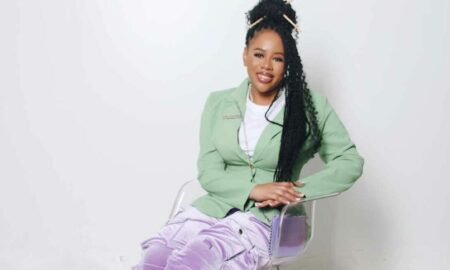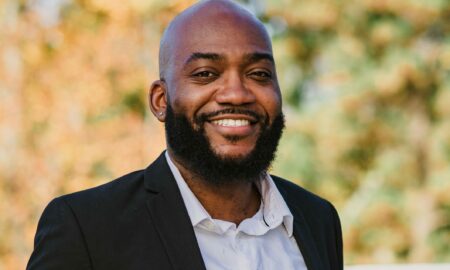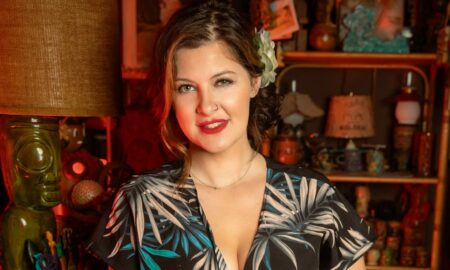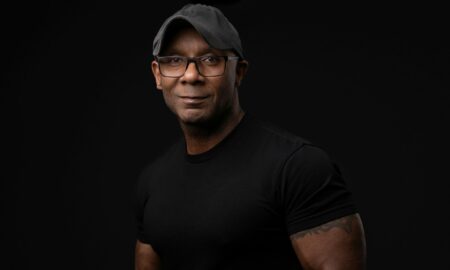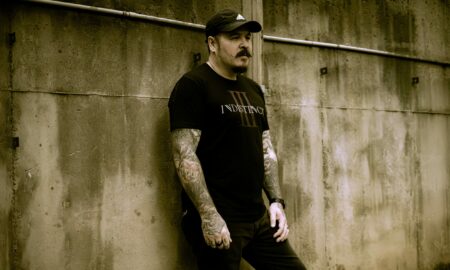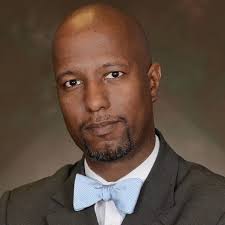
Today we’d like to introduce you to Christopher Bass.
Dr. Christopher K. Bass is originally from Washington D.C., a place that he credits with influencing him and his ideas related to ethnocentric research and study. Growing up in the 1980’s he witnessed the crack epidemic firsthand as it changed his once historic neighborhood. The sanctity of a once thriving community lay in shambles as members of his community and immediate family fell to the effects of the “drug decade.” During this period, the interaction between the community and the police were growing tense, as both sides were forging opinions and beliefs of the other that would define and shape its interactions for decades to come. These experiences provided him with the fuel needed to escape the harsh realities and delve into the science of Psychology. Introduced to the field of Psychology in his middle school years, he saw the field as an avenue to reach and impact the minds of inner-city youth and communities. He also saw it as a welcomed escape from the burgeoning stereotypes that had begun to rise about inner-city youth. As a first generation college graduate, he now has Psychology degrees from both Clark Atlanta University (1992) and the University of Wisconsin (1995, 2000). After earning his Doctorate, he began a series of academic appointments and clinical practice along the Eastern United States. An avid scholar, he has published numerous articles, book chapters and books investigating the effects of specific culturally relevant treatment approaches on active and reactive conduct disorder and varying personality disorders. His major influence in the field of forensic psychology was Dr. Jack Apsche, who he had the great opportunity to work closely with clinically, learn from scientifically and be mentored by personally.
Together, they published a myriad of articles looking at the utilization of Mode Deactivation Therapy in various clinical contexts. It was through this relationship that he began to focus on scholarship devoted to criminology, serial offenders, and adjudicated aggressive and sexually aggressive cases. While his clinical and research area of focus center on crimes involving sex and aggression, he has also worked with a number of other clinically recognized mental disorders. Clinically he has served in a variety of posts, including; Clinical Director at a residential treatment facility for adjudicated late adolescent males, Psychologist for the City of Atlanta and Senior Psychological Partner at The Bass Medical and Psychological Consultants firm LLC. His work with Police Departments and other service agencies around the country has provided him with the platform to lecture and speak on cultural considerations in traditional fit-for-duty evaluations, psychological variables related to police and community interaction, adjudicated youth involvement in the judicial system, recidivism and alternative approaches for family reintegration and serial offender profiling. He has held faculty appointments on the campuses of Hampton University, University of Georgia, Walden University, Oglethorpe University, Morehouse College and Clark Atlanta University.
Has it been a smooth road?
The struggles were many. This ride has not been easy. The most difficult part about doing this work is the historic stigma that has been placed on Mental health. Within our community, the concept of speaking to someone about your struggles is often shunned. Many people who suffer mentally seek out those who they trust. Thus, religious figures have often been used as the “go to” when dealing with mental health issues. As someone trained in the mental health field, another challenge that I see is the overwhelming lack of attention to things that support mental illness. Some media actually promotes mental confusion. Joy DeGruy developed a concept many years ago called Post Traumatic Slave syndrome. This syndrome depicts the mental residue that descendants of slaves inherited. I see a popular trend toward self destruction in our youth, which is especially disturbing to those who have been trained to work with mental confusion. I always ask my scholars and those who are budding therapists; Once you are “woke” what will you do with it”? I ask that because of the level of conformity that I see. An obstacle of this profession and my work is the current societal pressures that bend toward mental instability. What’s normal? What is the Black community? What is it to be a Black Man/Woman?
Please tell us about your practice.
I have been a Professor in the Department of Psychology at my Alma Mater, Clark Atlanta University, for the past 15 years. I specialize in Sexual trauma: those who have been sexually abused and those who have sexually abused. My writings and work have centered around promoting those variables that have been linked with resiliency in spite of trauma. I am known for my speaking engagements, my scholarship toward this population and my teaching at the University. I teach a variety of courses, but the course that remains very popular is the Human Sexuality course.
Within this course, I expose scholars to current and historical concepts related to sexuality, but also I have a covert agenda. That agenda is to help young people make wise and healthy decisions related to identity and relationships. What sets me apart is my willingness to help students get to the place of healing as they continue to develop as young adults. Because of this genuineness and transparency, I have been nominated and voted “Professor of the Year” every year for the past 12 years.
Let’s touch on your thoughts about our city – what do you like the most and least?
This city has changed a great deal since I was an 18 year old student at Clark Atlanta University. This city has grown and continues to grow. I couldn’t have imagined that the city that I escaped to when running from the ills of the crack epidemic in Washington D.C. would evolve into this electric place. There is always something happening here in the city. There are cultural centers, Jazz clubs, art centers, historical libraries and beautiful parks. My children have grown up here and each corner of the city holds memories of their upbringing. Teaching within the Historic Atlanta University Center affords me the opportunity to see the excitement on the faces of new transplants to the city. This city, which I sought out to provide a learning experience, has taught me so much more than I ever could’ve imagined. Now, it affords my children with the same opportunities. Of the qualities of the city that I dislike most is traffic. I know that this is an artifact of all of the new transplants, but it is rough in the mornings. Despite this, I couldn’t imagine any other place that I would rather live.
Contact Info:
- Address: Christopher K. Bass, PhD
Department of Psychology
Clark Atlanta University
233 James P. Brawley Dr. SW
Atlanta GA. 30313 - Website: www.cau.edu
- Phone: 404-880-8481
- Email: cbass@cau.edu
- Instagram: drcbass
- Twitter: @drchrisbass

Suggest a story: VoyageATL is built on recommendations from the community; it’s how we uncover hidden gems, so if you or someone you know deserves recognition please let us know here.












